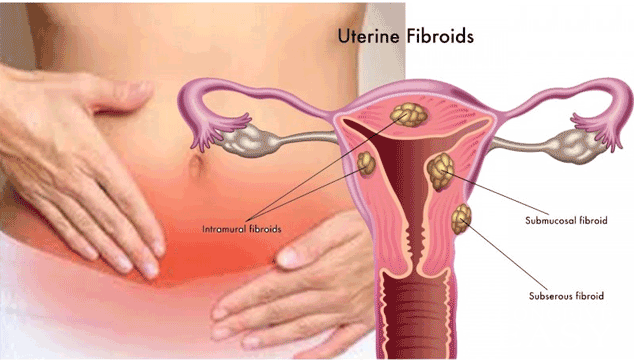![]() The information provided by our expert should not constitute a diagnosis of your condition. Always consult a medical practitioner or healthcare provider for a formal diagnosis. By making use of this content, you agree that ConceiveEasy and the expert assume no liability.
The information provided by our expert should not constitute a diagnosis of your condition. Always consult a medical practitioner or healthcare provider for a formal diagnosis. By making use of this content, you agree that ConceiveEasy and the expert assume no liability.
If you have uterine fibroids, you are probably a little bit concerned about how this medical condition will affect your fertility and your ability to conceive. However, you should note that fibroids are a very common medical condition, and they affect up to one in five women who are in their childbearing years.
Fibroids are benign tumors of the uterus, and while they are not cancerous, they can sometimes cause some complications for women, such as making periods very painful and heavy, and sometimes they can even cause fertility problems. Claim Your 20 Free Pregnancy Tests – Click Here

Experts say that it is important to note that in most women, fibroids don’t even have any symptoms. Most women, in fact, don’t even know that they have them. As far as infertility goes, only about 5 to 10 percent of infertile women are found to have fibroids, and fibroids are the actual cause of infertility in only about one to two percent of cases. So, it’s important to remember that it is rare that fibroids are an actual cause of infertility.

When it comes to fibroids, the location and the size of the fibroid is often what determines whether or not it will cause a pregnancy problem. For example, larger fibroids can interfere with conception due to the sheer size.
Also, fibroids that are found in the wall of the uterus, for example, could potentially affect where an embryo would grow. Some women have fibroids that grow outside of the uterus, and in these women, there is usually no problem at all when it comes to conception.

If a woman is suffering from fibroids and is also wanting to get pregnant, that is when things do start to become a little bit tricky. You see, there are many different viable treatment options available for fibroids, however, not many of them are fertility friendly.
The medical treatment that is needed to remove fibroids often also stops ovulation and disrupts hormone levels. However, surgical removal of fibroids remains to be an option for women who want their fibroids gone and their fertility intact.

There are several other fibroid treatment options available that are up and coming in the medical world. These procedures are becoming more and more popular and we are beginning to learn more about how they can affect women’s fertility.
For example, one procedure which is known as Uterine Fibroid Embolization, or UFE, is becoming very popular. In this procedure, particles are injected into the uterine arteries, causing the fibroids to shrink due to the lack of blood flow. Recent studies suggest that many women are able to go on to get pregnant after this procedure. Also, UFE has an estimated 90 percent cure rate, which is exceptional for uterine fibroids.

If you think that you have uterine fibroids and they might be affecting your chances of conceiving, speak with your doctor right away. Many things can be done to help get rid of fibroids and save fertility, but the first step is finding out the location, size, and number of the fibroids so that doctors can help to make a plan of attack. Stay positive and know that there is treatment available to help with this sort of problem.










Comments